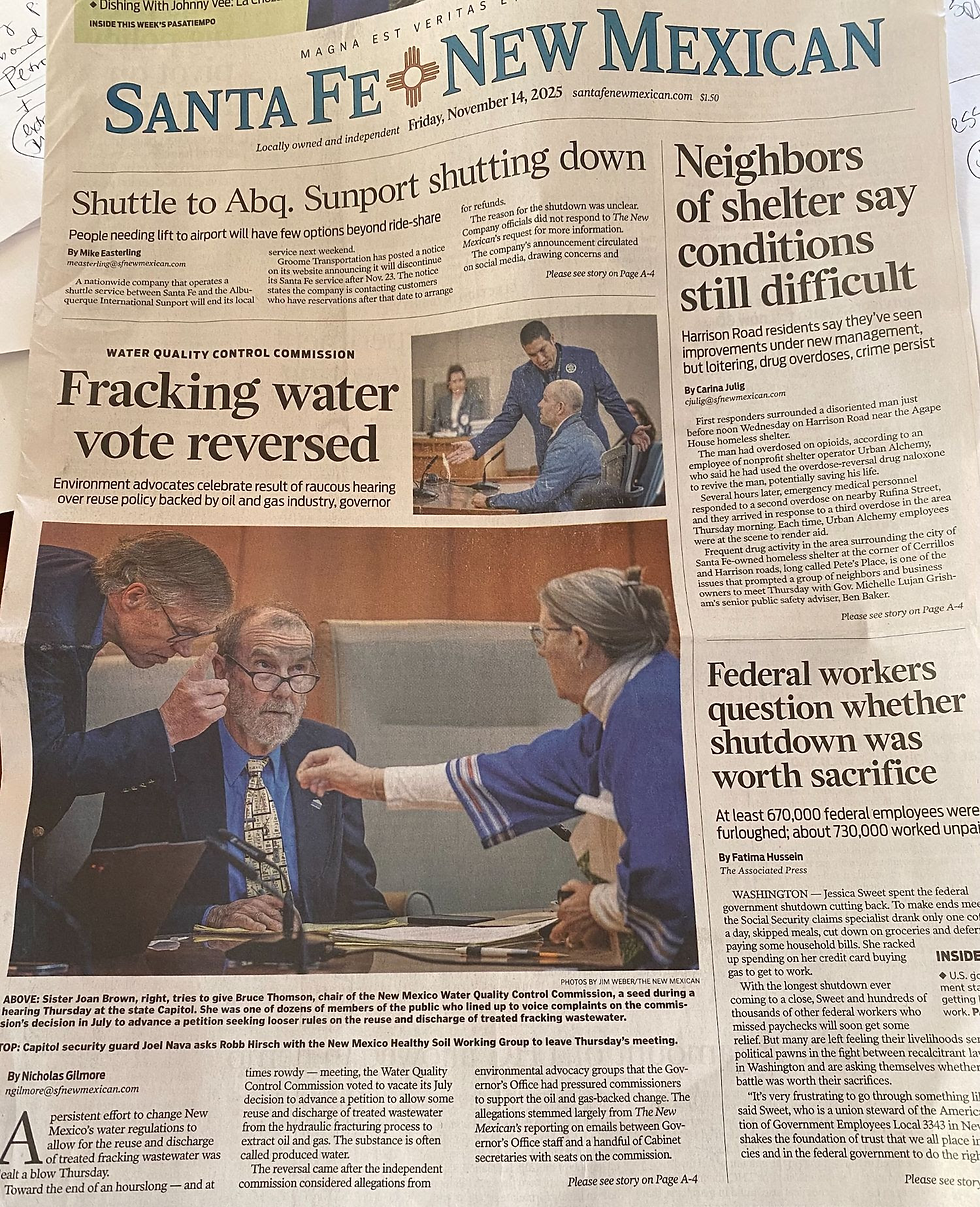Are we opening Pandora's box?
- New Energy Economy

- Mar 1, 2023
- 3 min read

Coming up on Friday morning two dangerous bills will be heard in House Government Elections and Indian Affairs. First, HB 431, a bill designed to Pre-empt the capacity of cities and counties to pass any ordinances or rules that might restrict the use of fossil fuels in their communities. Specifically aimed and blocking Local Choice Energy legislation, this bill could also block local building codes, energy efficiency programs or other local efforts to reduce climate emissions. Read more here, and click here to email committee members to oppose 431.
Second, in the same hearing, HB 426 the Clean Fuel Standards Act is up for a vote. You may have heard environmental groups argue for passage of HB 426, but New Energy Economy and the No False Solutions Coalition oppose this bill because it is a thinly disguised effort to implement a carbon offset and trading program to benefit false solutions like hydrogen and biofuels while doing next to nothing to impact transportation emissions. The bill, as it stands, includes vague language directing the promulgation of rules for a carbon trading program to include "the trading of credits among regulated entities and producers, suppliers and other entities that enable the use of low-carbon-intensity transportation fuels." This vague language opens the door to the inclusion of multiple industries and especially hydrogen production.
Important facts to note:
The reduction of climate changing emissions from proposed Clean Fuels Standards is negligible and the targets in this bill come nowhere near the reductions required by science.
Carbon offset and trading programs delay action on real emissions reductions and shift the pollution burden to low-income, Indigenous and other already burdened communities.
Incentives for biofuels lead to land-use changes by creating financial incentives for the expansion of mono-crop agriculture into previously biodiverse areas and raising food prices related to affected crops
In some cases carbon credit systems create a perverse incentive to continue dirty industries. See this example cited by Friends of the Earth:
Look no further than the California Low Carbon Fuel Standard (LCFS), which allows for hydrogen produced from fossil gas to generate valuable compliance credits via book-and-claim accounting. Take the example of an SMR facility in Wilmington, California owned and operated by Air Products and Chemicals, one of the biggest hydrogen producers in the US and a vocal proponent of a gas book-and-claim system for 45V. The facility produces bog standard grey hydrogen, but the company selling this hydrogen as a transportation fuel promises that the “environmental attributes” of methane biogas have been acquired from two factory farms in Indiana. This shell game is common under the LCFS, which allows for wildly inflated claims of carbon negative methane biogas. In practice, factory farms and landfills across the country can sell paper credits to LCFS participants, despite having installed methane capture years before LCFS biogas incentives were available. This makes industry claims that those emissions are being “avoided” as a result of the policy especially bogus. The incentive structure is becoming so perverse that a dairy trade publication recently noted that profits from paper credits could exceed profits from milk. This double (or more) dipping into climate incentives while making no meaningful changes to a polluting status quo is hugely problematic on both environmental justice and climate grounds. Factory farms are massive sources of soil, air, and water pollution — with documented health harms on surrounding, disproportionately BIPOC, communities. Factory farms benefit from a lax to nonexistent air emissions regulatory environment, allowing methane biogas producers to ignore leakage during production and transportation while raking in clean energy subsidies. Similarly, perverse incentives for producing landfill gas encourage landfill operators to abandon best pollution abatement practices in order to increase their methane biogas production and energy value. This has resulted in significant emission leakage that is not reported or captured in modeling.
If you come in person to Room 305 at 8:30AM on Friday to make public comment (or just raise your hand) against these bills, or show up on zoom at https://us02web.zoom.us/j/81850374006 to raise your hand and speak against them, double climate action points for you!







Comments